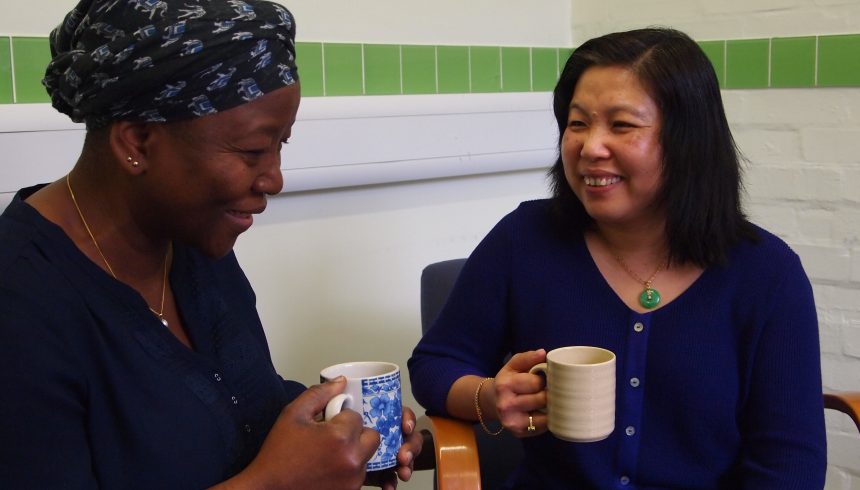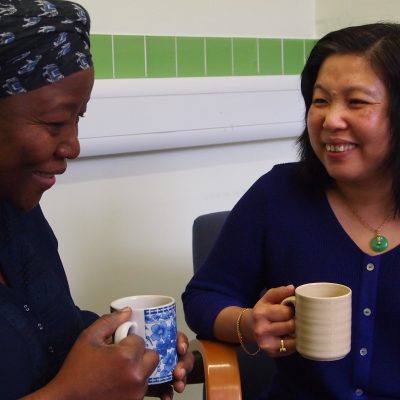How can we best accompany people living through the indefinite suffering of destitution and detention? What different experiences do refugees and JRS staff and volunteers have of accompaniment? What are its fruits, challenges, and limits? How can the relationships involved in accompaniment be transformative? Is there something especially significant in refugees accompanying each other? How might accompaniment help to maintain hope? Are there ways that accompaniment might go wrong?
Accompaniment – being with – is at the very heart of JRS’s vocation. We accompany, serve as companions, and advocate for refugees. In accompanying, we see the human face of the other; we sit with them and seek to understand them as they are, and to encounter them authentically, also as we are. Accompaniment is one of the things I most value about JRS. And yet it can often seem enigmatic, especially when it comes to thinking about how it plays out day to day. In fact, when I talk about JRS to friends and family, and they ask me to explain accompaniment, I sometimes struggle.
We felt it was important to reflect on accompaniment, so we are bringing together refugees, JRS staff and volunteers, and theologians to listen to and learn from each other, and to grapple with the issue together. So far, we have had two meetings focused on listening to refugees and practitioners – those who accompany refugees, whether themselves refugees or not. In the summer we will have a third meeting, focused on listening to theologians, and building collectively on their ideas. This is part of a collaboration with theologians based at Campion Hall, a Jesuit institution within the University of Oxford. It builds on last year’s project Refugee Stories: changing the narrative, which focused on the asylum system.
This project is proving valuable in so many ways: it offers the opportunity to understand better how refugees variously experience and participate in accompaniment; and to really listen to those who accompany refugees where, most often, they listen to others. In this way, everyone at JRS can gain an understanding of the impact of accompaniment on ourselves and each other, and of our lived praxis. Such understanding can help us to deepen our mission of accompaniment. At the same time, theologians encounter the practice of accompaniment at JRS, in a context where it is lived out, and this has the potential to be transformative. Furthermore, accompaniment is a political act, because the personal is political. The act of encounter stands in contrast to the hostile environment, the suspicious disbelief of the asylum system, and the practice of detention – incarceration for immigration purposes. Theological reflection on accompaniment can therefore help us to articulate a counter-culture, a culture that humanises in the face of dehumanisation. It can help to create a culture of hospitality.
The full fruits of the accompaniment project, of course, continue to unfold. We will hold a conference at the London Jesuit Centre on 18th September 2019, to share reflections on accompaniment in the context of asylum more widely. You are very welcome to attend. Keep an eye on our website for further details.



